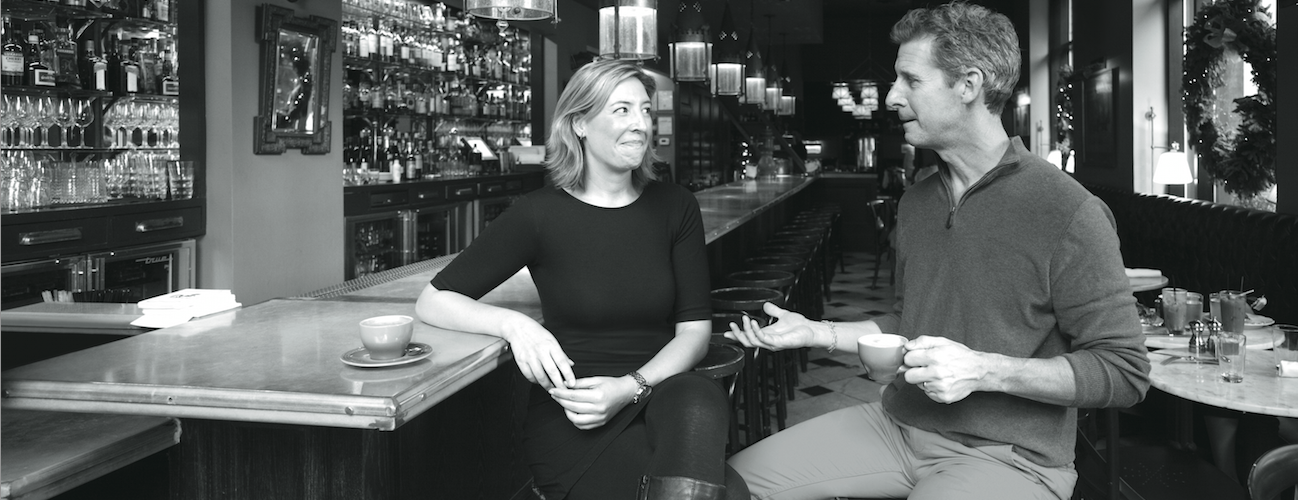Sign up for The Media Today, CJR’s daily newsletter.
Donald Trump’s election revealed not only the depths of our political polarization, but also the public’s dwindling trust in media and the impact of economic anxiety on voters. In the wake of Trump’s inauguration, America’s most widely-heard business and financial news program is seeking to examine the disconnect between improving top-line numbers for the US economy and the feeling among many Americans that they are barely treading water.
Marketplace, the 28-year-old suite of programs from American Public Media that is now broadcast on nearly 800 public radio stations around the country, is expanding its offerings. The program has set itself a lofty goal: Increase Americans’ economic literacy.
Its first effort, Make Me Smart, a podcast featuring longtime Marketplace host Kai Ryssdal and tech reporter Molly Wood, launches today. Ryssdal and Wood know that to achieve their goal, they need to find ways to grow their audience beyond Marketplace’s 13 million weekly listeners. They hope the podcast, aimed at deep exploration of economic issues and including participation from audience members and experts, will begin to do that.
During the campaign, Trump often cast doubt on official economic numbers, so much so that his press secretary, Sean Spicer, was asked on Monday what the unemployment rate was in a question driving at whether the administration would be accepting Bureau of Labor statistics. Spicer refused to answer, saying that there were “several versions” of the number. Just before the election, a Marketplace survey found that one quarter of Americans–including nearly half of Trump supporters, but just five percent of Clinton supporters–completely distrust federal economic data such as the unemployment rate, number of jobs added, and the amount of consumer spending.
“That to me is deeply, deeply troubling,” Ryssdal says. “It talks about what [Trump] did during the campaign. It talks about the deep cynicism that is out there among a portion of the electorate. It talks about the challenges that we as economic journalists have about presenting the facts of an economy. It’s all of a piece, because it’s not just journalists who have to be believed; it’s facts that have to be believed.”
Many news organizations are pondering how to rebuild trust with a skeptical public. Make Me Smart aims to be an “ongoing conversation” with the audience, and its hosts believe the more conversational format and deeper exploration of the economy from topline numbers to on-the-ground reality with help engage new listeners.
Wood says that, since the election, she has been focused on a simple question: “Do people trust us? When we come to the point where we need to say, ‘These numbers are real’ or ‘This story is true,’ do we have that trust?” Recognizing that, far more often than would be desirable, the answer is “no,” she sees engagement with the audience as one way to break through. “It’s a great moment to come out with a product where we talk directly to our listeners every single week.”
Make Me Smart won’t try to produce a full report on the week’s economic news. Instead, it intends to tackle a single issue such as housing foreclosures. “What we get to do on this show is take one [topic] and explore it all the way, with an audience having their voices be part of the show constantly, and be more transparent about our learning process as our audience informs us about a topic,” Wood says. “We’re trying to spend our time connecting those dots.”
Marketplace is planning to explore additional audio options, and it will also seek to build partnerships with other outlets. Over the past eight months, Marketplace has worked with Frontline and PBS NewsHour on a jointly published production called “How the Deck is Stacked” that explores the dissonance between the improved economy and issues like wage stagnation and income inequality.
Though plans to expand Marketplace were in the works long before November, Make Me Smart’s hosts acknowledge that the election has sharpened their purpose. “Political change in this country was driven, at least in part, by the way things are going in this economy,” Ryssdal says. “With the renewed mission that we have of increasing the economic literacy and intelligence of the American population, this is the time for us to embrace that more than we have in the past. There is a situation now where the economy is going to be changing, and we want to help people understand what is going on.”
Has America ever needed a media defender more than now? Help us by joining CJR today.



